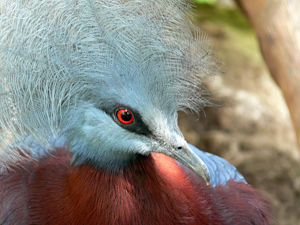Other experiments carried out more recently have confirmed that having a relevant thought prior to an action also gives us the feeling that we ‘caused’ the action, even when this is not the case. One experiment involved an arrangement of mirrors whereby the subject sees himself but with another person’s arms in place of his own. Instructions to move the arms in various ways are given and the arms subsequently move accordingly. Although the arms actually belong to an unseen person, the subject nevertheless feels that he has moved them. Continue reading
Tag Archives: free-will
Dennis: Free Will (Part 4)
“The experience of willing an act arises from interpreting one’s thoughts as the cause of the act.” Daniel Wegner, quoted in the excellent book: Consciousness: an Introduction, Susan Blackmore, Oxford University Press, 2004. ISBN 0-19-515343-X. Buy from Amazon US or UK.
The scientific views that are often cited in respect of these discussions stem from experiments conducted by Benjamin Libet in the late 1970’s and by Daniel Wegner in the 1990’s. I described these in my books ‘How to Meet Yourself’ and ‘Back to the Truth’. Since very few people have actually read the former, I will quote at length from that: Continue reading
Dennis: Free Will (Part 3)
The metaphor of the motor boat crossing a fast-flowing river was used by Swami Chinmayananda. The current represents karma or destiny, as dictated by our prArabdha saMskAra; the power of the motor represents our own self-effort or free will. If the current is strong and our will is weak, we will be unable to overcome its force. If we are able to exert powerful self-effort (puruShArtha), we may overcome the force of habit and forge a new path.
Advaita tells us that who-we-really-are does not act in any case. For there to be action, there would have to be (at least) two things. But, empirically, we the witness see the body (which is only matter) performing actions. We identify with this and think that ‘I am acting’. The Bhagavad Gita (III.27) says: “The guNa-s of prakRRiti perform all karma. With the understanding clouded by egotism, man thinks ‘I am the doer’.” Continue reading
Dennis: Free Will (Part 2)
There are several Sanskrit words that carry the sense of free will but, if we look at these a little more closely, a pattern quickly emerges.
A voluntary action, ‘acting of one’s own free will’ is kAmakAra. The kAra part is the ‘doing’ and kAma means ‘wish, desire, longing’. Even more specifically, sakAma – ‘acting of one’s own accord or free will’ –literally means ‘with desire’. svachChanda is another variant: sva means ‘one’s own’ and Chanda means ‘pleasure, delight, appetite’. svatantra indicates ‘independence’ or ‘self dependence’. saMkalpa means ‘will’ or ‘volition’ in general and yatna is an ‘activity of will or volition’. Possibly the closest in meaning is svechChA. which means ‘one’s own wish or will, free will’; svechChAra means ‘acting as one like, doing what is right in one’s own eyes’. But here again, breaking up the word svechChA gives us sva ichChA – ‘one’s own wish, desire or inclination’. Basically, what the scriptures seem to tell us is that having ‘free will’ means acting in accordance with our own wishes or desires.
Whether or not our own desire influences an action or not is how Aristotle differentiates actions. If the cause of an action is external and we do not contribute anything to it, then it is ‘involuntary’. If the action is triggered by our personal desire or after appropriate deliberation about whether or not to act, then it is voluntary.
Dennis: Free Will (Part 1)
 “Men believe themselves to be free, because they are conscious of their own actions and are ignorant of the causes by which they are determined.” (Spinoza. Ethics III)
“Men believe themselves to be free, because they are conscious of their own actions and are ignorant of the causes by which they are determined.” (Spinoza. Ethics III)
The topic of free will is one which seems always to stimulate lots of discussion and some strongly held views. It occurred to me the other day that maybe this is because it is crucial to the sense of my ‘self’ as a separate entity. It is very important to ‘me’ that I should have the power of choice. If this is not the case, it somehow demeans who-I-feel-myself-to-be, relegating me to the level of an animal, forever bound by its inherited nature. It would mean that I am at the mercy of whatever chance events occur around me, reacting to them in an automatic, programmed manner, little better than a robot. Continue reading




